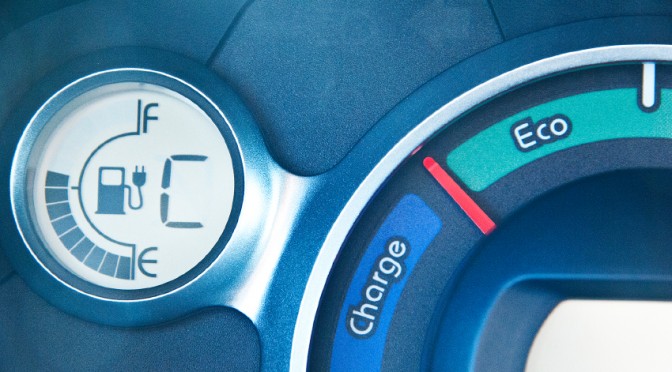It would be a breakthrough that counters criticism from a cynical public who, in the past, have pointed out that electric vehicles travel only a short distance and need a whole night to recharge.
“I can tell you that there will be a vehicle that will do Land’s End to John O’Groat’s on a single charge next year,” said Ian Hobday, CEO of Liberty Electric Cars, one of Britain’s fastest-growing electric car manufacturers.
The Land’s End to John O’Groat’s remark refers to a journey from one end of the United Kingdom to the other, from deepest southern England to the tip of mainland Scotland.
Hobday said the news of a potentially record-breaking electric car, which could be set for release in 2013, in an interview with online motoring magazine Motortrades Insight.
The vehicle will be capable of a range between 837 miles to 1,000 miles—four times the farthest range of electric cars currently available on the market. Potentially such a car would be capable of reaching from the UK far into Europe without need for a recharge.
Liberty Electric’s “Pure Electric” e-Range—the world’s first zero-emission four-by-four—is already on the road. While the price and final model for the record-setting new car is yet to be revealed, Hobday added: “It shows you where the electric car technology is going.”
Speaking about the electric car industry as a whole, he said: “If I have to forecast where we’re going to be, right now we’re at 200 [miles] to 250 miles without too much trouble. We will be at 400 [miles] to 500 miles within two or three years.
“Have no fear,” he added, “battery-based energy storage for electric vehicles will be capable of delivering everything that a tank of petrol or diesel can deliver within two or three years.”
The battery technology has been developed by Metalectrique Ltd., a research and development business based in Saltash, Cornwall, southern England, using proprietary metal-air electric power technologies.
Metalectrique owner Trevor Jackson commented: “Having carefully looked at the business cases for the highest energy density batteries, by 2000 I came to the conclusion that aluminium-air technology was the best option.
“Since then I developed the technology so that it can use ordinary aluminium to make enough power to drive a car but with the useful side effect of very long range. At the moment we’re getting about 1,500 miles at full power in bench tests.
“This is game-changing as we don’t need an electric recharge infrastructure, just some battery swap stations you visit every few months. It’s also cheap [estimated at about 9p a mile] and safe. We all know about aluminium and there’s nothing explosive or flammable involved.
“Long range means long duration and now I’m working with robotic companies who need long-lasting power. In the future I think this technology could be used for shipping and electric flight.”
By the end of 2013, Liberty Electric Cars aims to double its work force to 80—a sure sign of the times to come for Britain’s electric-car revolution.
Electric mobility has taken a leap forward, thanks to significant investment in the UK’s charging network that will make it easier to own and run an electric car.
The UK has made a real commitment to creating an electric vehicle-charging infrastructure, says Motortrades Insight.
As part of a £37-million scheme, the government has announced that it will contribute 75 percent to the cost of an installed charger at a home address anywhere in the UK. As well as the home charging bonus, the government also announced other major benefits for the entire charging network.
Working with local authorities, the new scheme will see the government put up three quarters of the cost of installing public chargers, such as rapid chargers, which can charge a Nissan LEAF or Liberty’s E-Range Rover to 80 percent in just 30 minutes.
The UK is contributing 75 percent to the cost of installing charging points at railway stations, while any public-sector organization—such as the police, hospital or local government—wanting an on-site charging point will have the installation carried out for free.


